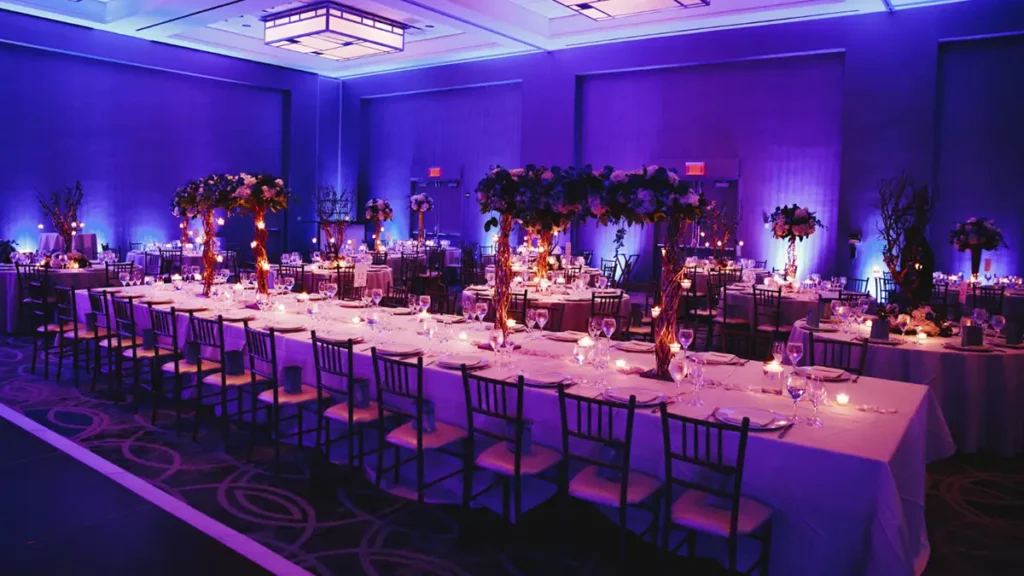Best Event Planning Niches in 2025—Profitable Paths to Success
The U.S. event planning industry is growing. IBISWorld reports that party and event planners are set to bring in about $1.7 billion in 2025. Trade shows and conference planning add another $23 billion to the market. This means more weddings, conferences, and celebrations than ever. For planners who focus on the right niche, it also means more opportunities to earn and stand out. I know event planners who doubled their revenue in just one year by specializing in one niche.
Finding the best event planning niches 2025 is not only about following trends. It is about becoming the expert people turn to when they need a specific service. Specializing helps you attract clients faster, charge more, and build a reputation that brings referrals.
Three Reasons Niches Are More Profitable in 2025
- You can charge premium rates when you are known for a speciality.
- You will get more referrals from clients in the same niche.
- You can market yourself faster with focused messaging.
Some niches are popular now, while others are just emerging. Early adopters can gain a huge advantage. To grow your business, start by learning how to start an event planning business.
Why Specializing in a Niche Is the Smart Move in 2025
Have you ever wondered why some event planners get booked months in advance and earn higher fees?
The answer is focus. Planners who work in profitable event planning niches 2025 become the go-to choice for their specialty.
- Specialization makes branding and marketing simpler.
Clients remember planners who focus on corporate retreats, luxury weddings, or eco-friendly celebrations. Your marketing becomes sharper, your audience more targeted, and your rates higher. - Higher income opportunities.
Many event planners expect higher revenue from specialized events. Surveys show that most planners anticipate bigger budgets and more bookings for niche events than for general services. - Industry trends support specialists.
AI tools, eco-friendly setups, and hybrid events are creating more opportunities for planners who focus on a niche. - Specialization builds trust.
As industry expert Laura Capell-Abra says, “Specialization builds trust. Clients are more confident hiring someone who lives and breathes their type of event.” - The benefits go beyond money.
You will get more referrals, face fewer competitors, and work with clients who truly value your expertise.
How to Choose the Right Event Planning Niche

Choosing a niche is not only about trends. It is about matching your passion with profitability. Here is how you can pick the right niche:
Passion
Work becomes easier when you love the type of events you plan. If you enjoy corporate culture, conferences or team-building retreats may be your niche.
Skills
Play to your strengths. Creative planners excel at luxury weddings, while highly organized planners shine at trade shows.
Demand
Check what is popular in your city. Use Google Trends, surveys, or industry reports to find growing opportunities.
Competition
Look for gaps. If weddings are saturated but corporate events are lacking, that is your chance.
Profitability
Ensure your niche matches the income you want. Consider event size, frequency, and client budgets.
Self-Assessment Checklist
- Which events excite me the most?
- What skills make me stand out?
- Is there a growing audience for this niche?
- Who are my competitors, and how do I differ?
- Can I earn the income I want?
Event pro Sarah Petty says, “The right niche is not found. It is crafted from your strengths, your story, and your market.”
Best Event Planning Niches 2025

Not all events offer the same opportunities. These niches combine demand, growth, and potential earnings:
Corporate Event Planning Niches 2025
Corporate events bring large budgets. This includes conferences, product launches, reward trips, and hybrid formats. Companies want measurable results and are willing to pay for them.
Example events: Annual shareholder meetings, leadership summits, virtual sales kickoffs.
Tip: Offer post-event analytics to show value and secure repeat clients.
Private Event Planning Niches
Private celebrations are personal, emotional, and often high budget. Clients want unique experiences that reflect their style.
Example events: Sweet sixteen parties, golden anniversaries, luxury family reunions.
Tip: Build a portfolio showcasing unique themes and custom details.
Emerging Event Planning Niches
New markets are opening quickly. Sustainable weddings, pet-focused events, and NFT art shows are attracting younger audiences. Early adopters can claim these high-interest areas before they get crowded.
Example events: Zero-waste conferences, pet adoption galas, virtual reality product launches.
Tip: Follow trend reports like BizBash’s annual forecast to spot opportunities.
Hybrid Event Planning
Hybrid events mix in-person and virtual attendance. They are perfect for global audiences or guests unable to travel.
Example events: Live-streamed concerts, hybrid trade shows, virtual award ceremonies.
Tip: Partner with AV experts to ensure smooth streaming.
Wedding Planner Niches
Micro weddings, destination weddings, and cultural ceremonies are growing. Couples want experiences that are meaningful and Instagram-ready.
Example events: Luxury elopements, multicultural ceremonies, themed weddings.
Tip: Offer packages for eco-friendly or cultural weddings.
Sustainable Events
Eco-conscious clients are increasing demand for green planning. Use local catering, biodegradable décor, and other eco-conscious practices.
Example events: Carbon-neutral festivals, green conferences, zero-plastic weddings.
Tip: Get certified in sustainable event practices to stand out.
Trade Show Planning
Trade shows need careful coordination of vendors, layouts, and exhibitor services. Big budgets require precision.
Example events: Technology expos, medical conventions, real estate showcases.
Tip: Learn floor-plan software to optimize exhibitor space.
Experiential Events
Immersive events are growing fast. Brands and individuals want memorable, sensory-driven experiences.
Example events: Pop-up art exhibits, brand activations, themed interactive dinners.
Tip: Use AR or VR to create a wow factor.
Trends Shaping Event Planning Niches 2025
Smart planners are not only running events. They are staying ahead of trends.

Personalization
Guests want experiences tailored to them. Offer custom menus, interactive entertainment, and surveys before the event.
AI in Event Planning
AI saves time and provides insights. Use it for budgeting, seating, and guest communication.
Sustainable Events
Eco-conscious choices are essential. Choose renewable-energy venues, local vendors, and zero-waste catering.
Hybrid and Immersive Experiences
Combine virtual and in-person elements to reach a wider audience and keep them engaged. Many planners are boosting personalization budgets. Hybrid event formats are also becoming a standard approach.
Which Event Planning Niches Make the Most Money
Some planners earn six figures with just a few projects. The secret is choosing high-demand niches with loyal clients.
| Event Planning Niche | Estimated Annual Earnings (USD) | Notes |
| Luxury Weddings | 80,000 to 200,000 | High budgets and strong referrals |
| Corporate Conferences | 70,000 to 150,000 | Repeat contracts and large-scale logistics |
| Trade Shows and Expos | 60,000 to 140,000 | Vendor fees and sponsorship deals |
| Experiential Brand Activations | 75,000 to 160,000 | Brand partnerships and creative upsells |
| Sustainable Events | 50,000 to 110,000 | Growing demand from eco-conscious clients |
Profit depends on demand, seasonality, repeat clients, and specialization.
Conclusion
Choosing the best event planning niches 2025 is not just about income. It is about building a career that aligns with your passion and skills. Specializing helps you stand out, earn more, and work with clients who value your expertise.
Future events will be personalized, eco-friendly, and tech-driven. Planners who focus now will reap the benefits year after year.
Ready to turn your niche into a profitable business? Start by assessing your strengths, researching demand, and defining your audience. Then follow foundingstartups to make it happen.






